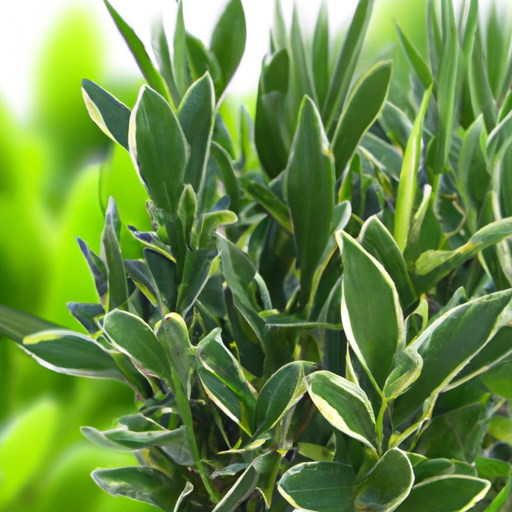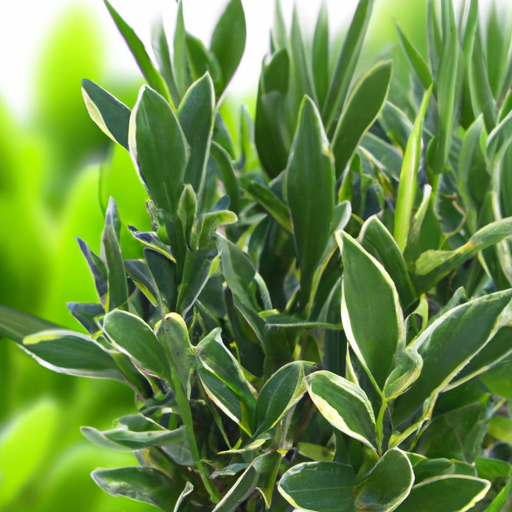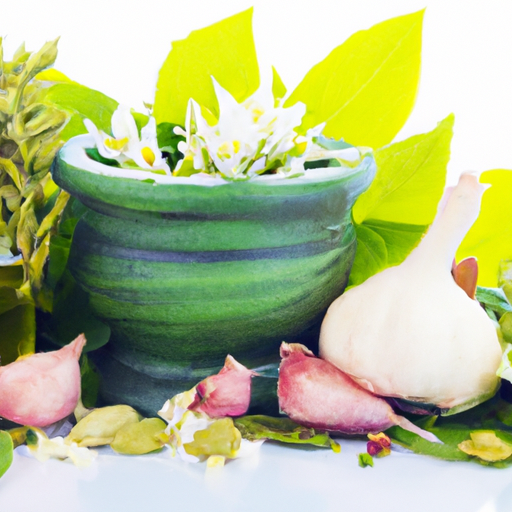So, have you ever wondered if there are any natural remedies out there that could potentially help with kidney failure? Well, you’re in luck because today we’re going to dive into the topic of herbs for kidney failure. Yes, that’s right – there are actually herbs that have been used for centuries to support kidney health and function.
Now, I’m not a doctor or anything, but I can definitely give you some information on this topic. You see, kidney failure is a serious condition where the kidneys aren’t able to properly filter waste from the blood, which can lead to a whole host of issues. While conventional treatments like dialysis and medication are often necessary, some people also turn to herbal remedies as a complementary approach. In fact, certain herbs like stinging nettle, dandelion root, and ginger have shown promise in studies for their potential to support kidney function. But hey, I can’t give you all the details just yet. If you’re interested in learning more about these herbs and how they may benefit those with kidney failure, keep reading the article. Trust me, it’s worth it.
Understanding Kidney Failure
Kidney failure, also known as renal failure, occurs when the kidneys lose their ability to filter waste products and extra fluid from the blood. This condition can be debilitating and potentially life-threatening if left untreated. Understanding the causes, symptoms, and treatment options for kidney failure is crucial for maintaining overall health and well-being.
What is kidney failure?
Kidney failure refers to the progressive loss of kidney function. The kidneys play a vital role in maintaining the body’s internal balance by filtering waste products, toxins, and excess fluid from the blood. Additionally, they help regulate blood pressure, stimulate red blood cell production, and keep electrolyte levels in check.
Causes of kidney failure
There are various factors that can contribute to the development of kidney failure. Some of the common causes include:
- Chronic kidney disease (CKD): Often caused by conditions such as high blood pressure and diabetes, CKD is a leading cause of kidney failure.
- Acute kidney injury (AKI): Sudden and severe damage to the kidneys due to infections, medications, toxins, or a lack of blood flow can result in AKI.
- Urinary tract blockages: Conditions like kidney stones, tumors, and enlarged prostate can obstruct the flow of urine and lead to kidney damage.
- Inherited kidney diseases: Certain genetic conditions, such as polycystic kidney disease, can progress to kidney failure over time.
- Autoimmune disorders: Immune system disorders like lupus and glomerulonephritis can cause inflammation and damage to the kidneys.
Symptoms of kidney failure
Recognizing the symptoms of kidney failure is crucial for early detection and prompt treatment. Some common symptoms include:
- Fatigue and weakness: Decreased kidney function can lead to a buildup of waste products, causing feelings of fatigue and weakness.
- Swelling: Fluid retention, often noticeable in the legs, ankles, or face, can occur due to impaired kidney function.
- Shortness of breath: Excess fluid in the body can accumulate in the lungs, causing breathing difficulties.
- Decreased urine output: Changes in urine frequency, color, and consistency can indicate kidney dysfunction.
- Nausea and vomiting: Buildup of waste products in the body can lead to gastrointestinal symptoms like nausea and vomiting.
The Importance of Herbal Remedies
In recent years, herbal remedies have gained popularity as alternative or complementary treatments for various ailments, including kidney failure. These natural remedies offer several advantages over conventional pharmaceutical options, making them an appealing choice for individuals seeking a more holistic approach to their health.
What are herbal remedies?
Herbal remedies, also known as botanical medicine, involve the use of plant parts, such as leaves, flowers, roots, and stems, for therapeutic purposes. These plants contain active compounds that have been shown to possess medicinal properties and can be used to improve overall health and treat specific conditions.
Advantages of herbal remedies
There are several advantages to using herbal remedies for managing kidney failure:
- Natural and holistic approach: Herbal remedies offer a natural and holistic approach to health, focusing on the underlying causes of the condition rather than merely treating symptoms.
- Fewer side effects: Compared to pharmaceutical drugs, herbal remedies often have fewer side effects, making them a safer option for long-term use.
- Gentle on the body: Herbal remedies work in harmony with the body, supporting its natural healing processes and minimizing the risk of adverse reactions.
- Potential for long-term benefits: Incorporating herbal remedies into a healthy lifestyle can provide long-term benefits for kidney health and overall well-being.
Safety and effectiveness of herbal remedies
While herbal remedies can be beneficial, it’s important to note that not all herbs are safe and effective for managing kidney failure. Consultation with a healthcare professional is crucial to ensure appropriate selection and dosage of herbal remedies. Additionally, it’s important to source herbs from reputable suppliers to ensure quality and purity.
Recommended Herbs for Kidney Failure
Several herbs have shown promise in supporting kidney health and managing kidney failure. These herbs, when used correctly, can complement conventional treatment approaches and provide additional support to the kidneys.
Dandelion root
Dandelion root has been traditionally used in herbal medicine for its diuretic and detoxifying properties. It helps increase urine production, facilitating the elimination of waste products and excess fluid from the body. Additionally, dandelion root exhibits anti-inflammatory benefits, reducing inflammation in the kidneys and promoting overall kidney health.
Ginger
Ginger is a powerful herb known for its antioxidant and anti-inflammatory properties. These properties can help protect the kidneys from oxidative stress and reduce inflammation, aiding in the management of kidney failure. Ginger has also been shown to improve kidney function and promote detoxification.
Nettle leaf
Nettle leaf is rich in essential nutrients and antioxidants, making it an excellent choice for kidney health. This herb supports the kidneys by promoting diuresis, reducing inflammation, and potentially lowering blood pressure. Additionally, nettle leaf provides essential vitamins and minerals that can contribute to overall kidney well-being.
Marshmallow root
Marshmallow root is known for its soothing properties, making it an ideal herb for irritated kidney tissues. It helps reduce inflammation and promote tissue regeneration in the kidneys. Marshmallow root can also assist in alleviating kidney-related discomfort and supporting overall kidney health.
Benefits of Dandelion Root
Dandelion root has gained popularity in the management of kidney failure due to its various health benefits. Incorporating dandelion root into your lifestyle can provide numerous advantages, including:
Detoxification properties
Dandelion root possesses detoxifying qualities that aid in the elimination of waste products from the body. By increasing urine production, it helps flush out toxins, reducing the burden on the kidneys and supporting overall kidney function.
Diuretic effects
As a natural diuretic, dandelion root increases urine production, promoting the removal of excess fluid from the body. This diuretic effect can be beneficial for individuals with kidney failure who are prone to fluid retention.
Anti-inflammatory benefits
Inflammation in the kidneys can contribute to the progression of kidney failure. Dandelion root contains anti-inflammatory compounds that help reduce inflammation in the kidneys, potentially slowing down the disease’s advancement.
Powerful Effects of Ginger
Ginger is a versatile herb with numerous health benefits, including its positive impact on kidney health. Incorporating ginger into your routine can provide powerful effects, such as:
Antioxidant properties
Ginger is rich in antioxidants, which help protect the kidneys from oxidative stress and damage caused by free radicals. This antioxidant activity can play a crucial role in preventing further kidney damage and maintaining kidney health.
Anti-inflammatory effects
Chronic inflammation is a common feature of kidney failure, exacerbating tissue damage and impairing kidney function. Ginger’s anti-inflammatory effects can reduce inflammation in the kidneys, potentially slowing down the progression of kidney failure.
Improves kidney function
Research suggests that ginger may have a positive impact on kidney function by improving renal blood flow and urinary output. Its diuretic properties promote urine production, facilitating the elimination of waste products and excess fluid from the body.
Health Benefits of Nettle Leaf
Nettle leaf offers a myriad of health benefits, particularly for individuals with kidney failure. Incorporating nettle leaf into your daily routine can provide several advantages, including:
Supports kidney health
Nettle leaf exhibits diuretic properties, enhancing urine production and promoting the elimination of waste products from the body. This support for kidney function can contribute to improved kidney health and overall well-being.
Anti-hypertensive effects
High blood pressure is a common complication of kidney failure. Nettle leaf has been shown to have anti-hypertensive effects, potentially helping to regulate blood pressure levels in individuals with kidney failure.
Rich in essential nutrients
Nettle leaf is abundant in essential vitamins and minerals, including iron, calcium, and vitamins A and K. These nutrients are vital for maintaining optimal kidney function and overall health.
Healing Properties of Marshmallow Root
Marshmallow root possesses healing properties that can benefit individuals with kidney failure. Incorporating marshmallow root into your health routine can provide several advantages, including:
Soothes irritated tissues
Marshmallow root has soothing properties that can alleviate discomfort and irritation in the kidneys. By reducing inflammation and calming irritated tissues, it supports kidney health and provides relief for individuals with kidney failure.
Promotes tissue regeneration
The regenerative properties of marshmallow root help promote the healing and regeneration of damaged kidney tissues. This can potentially slow down the progression of kidney failure and improve overall kidney function.
Reduces inflammation
Inflammation in the kidneys is a common feature of kidney failure. Marshmallow root contains compounds that help reduce inflammation, allowing the kidneys to function optimally and reducing the risk of further damage.
Using Herbs Safely and Effectively
While herbs can offer numerous benefits for managing kidney failure, their safe and effective use is crucial. Here are some considerations for incorporating herbs into your kidney health routine:
Consultation with a healthcare professional
Before starting any herbal remedies, it’s essential to consult with a healthcare professional, particularly if you have kidney failure or any underlying medical conditions. They can provide personalized advice, ensuring that the herbs you choose are safe and compatible with your specific health needs.
Proper dosage and preparation
Dosage and preparation guidelines for herbal remedies vary depending on the herb and its intended use. It’s important to follow dosage instructions provided by a healthcare professional or reputable source to ensure optimal safety and efficacy.
Possible side effects and interactions
Some herbs may interact with medications or have potential side effects. Before incorporating any herbs into your routine, consult with a healthcare professional to ensure there are no contraindications or potential adverse reactions.
Incorporating Herbs into Your Lifestyle
There are various ways to incorporate herbs into your daily routine to support kidney health and manage kidney failure:
Herbal teas and infusions
Brewing herbal teas and infusions is a simple and enjoyable way to consume beneficial herbs regularly. Choose herbs like dandelion root, ginger, nettle leaf, or marshmallow root and steep them in hot water for a few minutes. Enjoy these flavorful and therapeutic beverages throughout the day.
Herbal supplements
Herbal supplements provide a convenient option for individuals looking to incorporate herbs into their routine without the hassle of preparation. Look for high-quality herbal supplements that are specifically formulated for kidney health.
Healthy dietary choices
In addition to herbal remedies, adopting a healthy diet can provide further support for kidney health. Focus on consuming nutrient-rich foods, such as fruits, vegetables, whole grains, and lean proteins. Stay hydrated and limit your intake of processed foods, added sugars, and excessive sodium.
Conclusion
Herbal remedies offer a promising avenue for managing kidney failure and supporting kidney health. By incorporating herbs like dandelion root, ginger, nettle leaf, and marshmallow root into your routine, you can potentially experience numerous benefits. However, it is essential to approach herbal remedies with caution and consult with a healthcare professional to ensure safe and effective use. Embracing a personalized approach that combines conventional treatment options, herbal remedies, and healthier lifestyle choices can maximize the potential benefits and contribute to overall kidney well-being. Further research and consultation with healthcare professionals are crucial for understanding the full scope of herbal options available for managing kidney failure.


